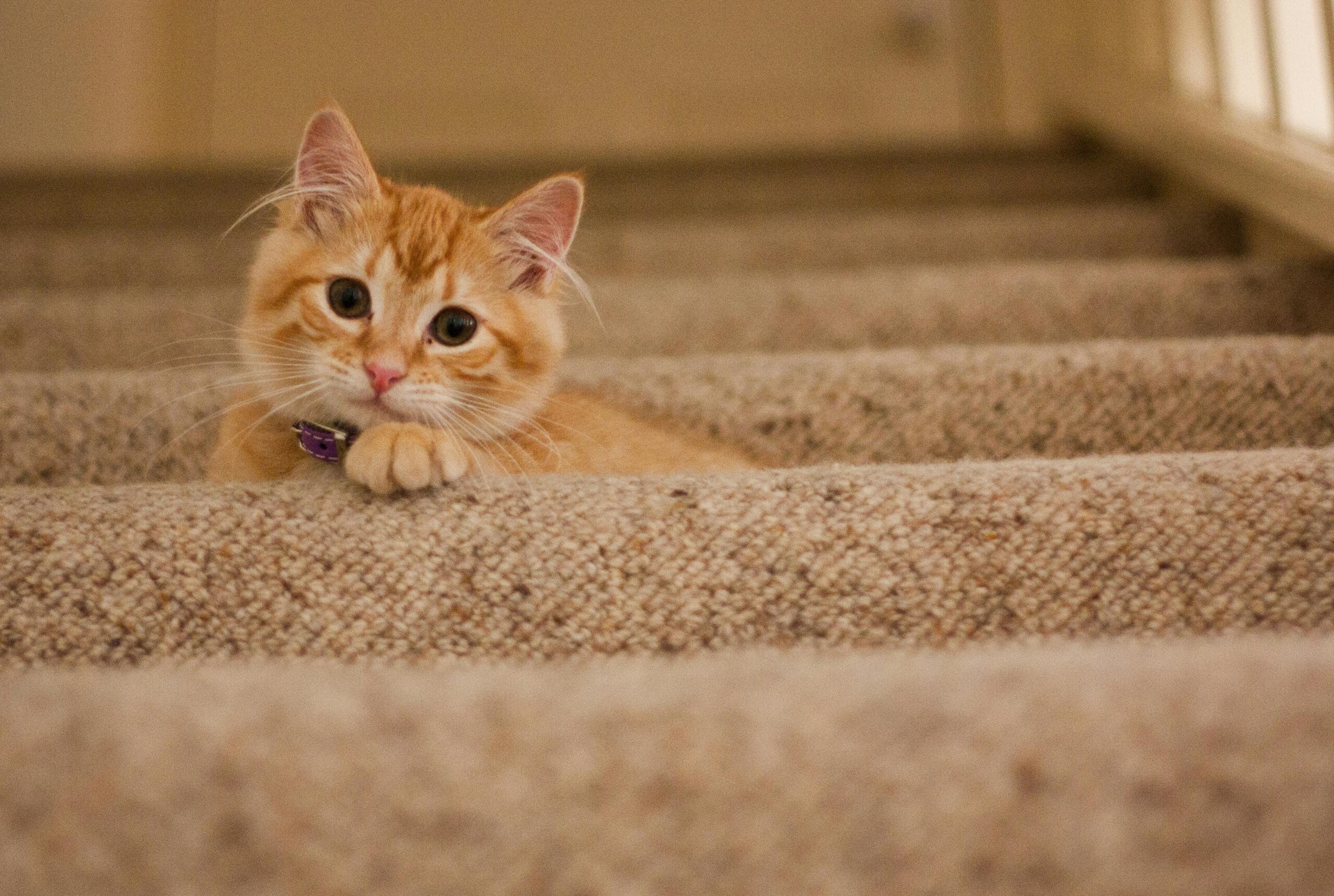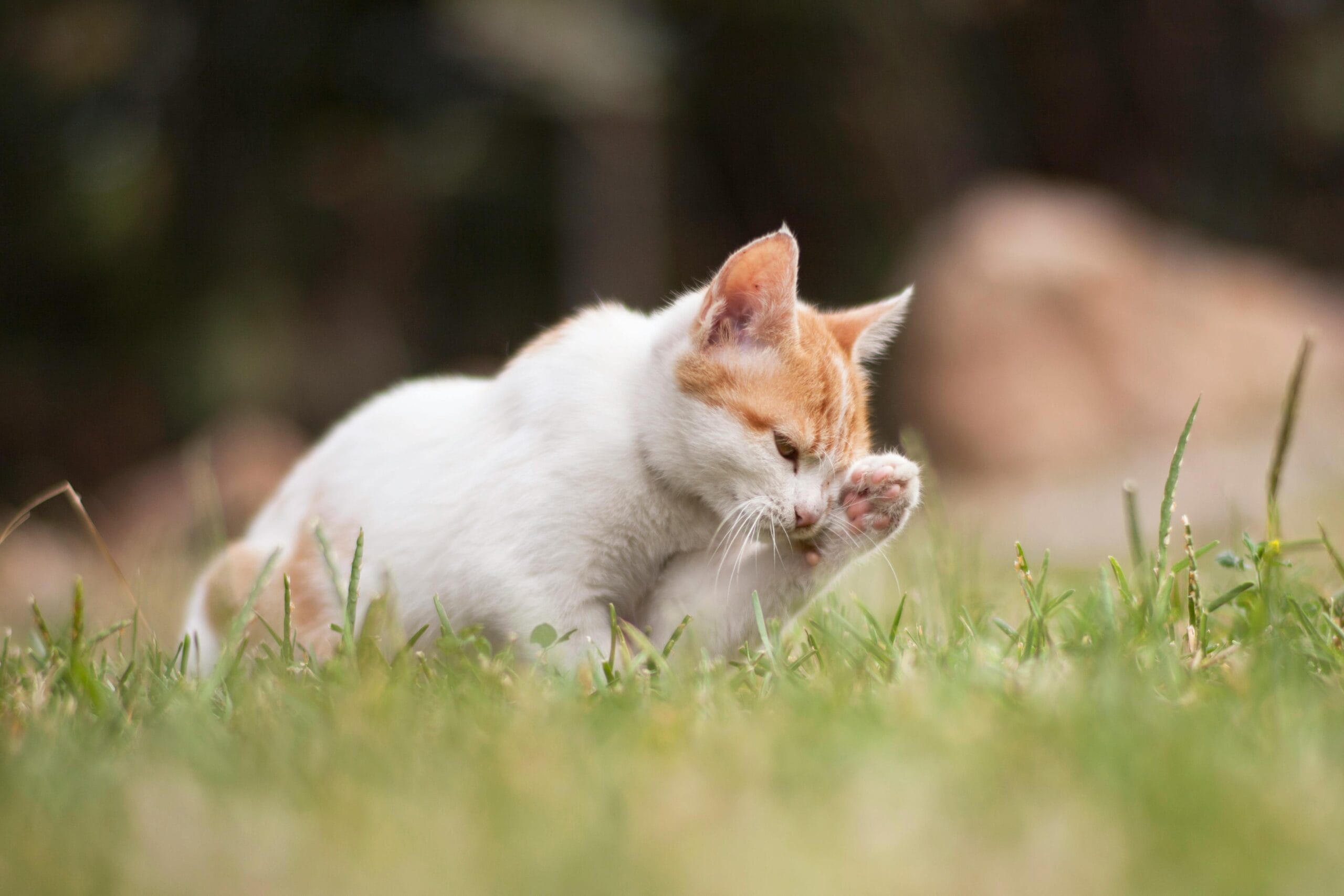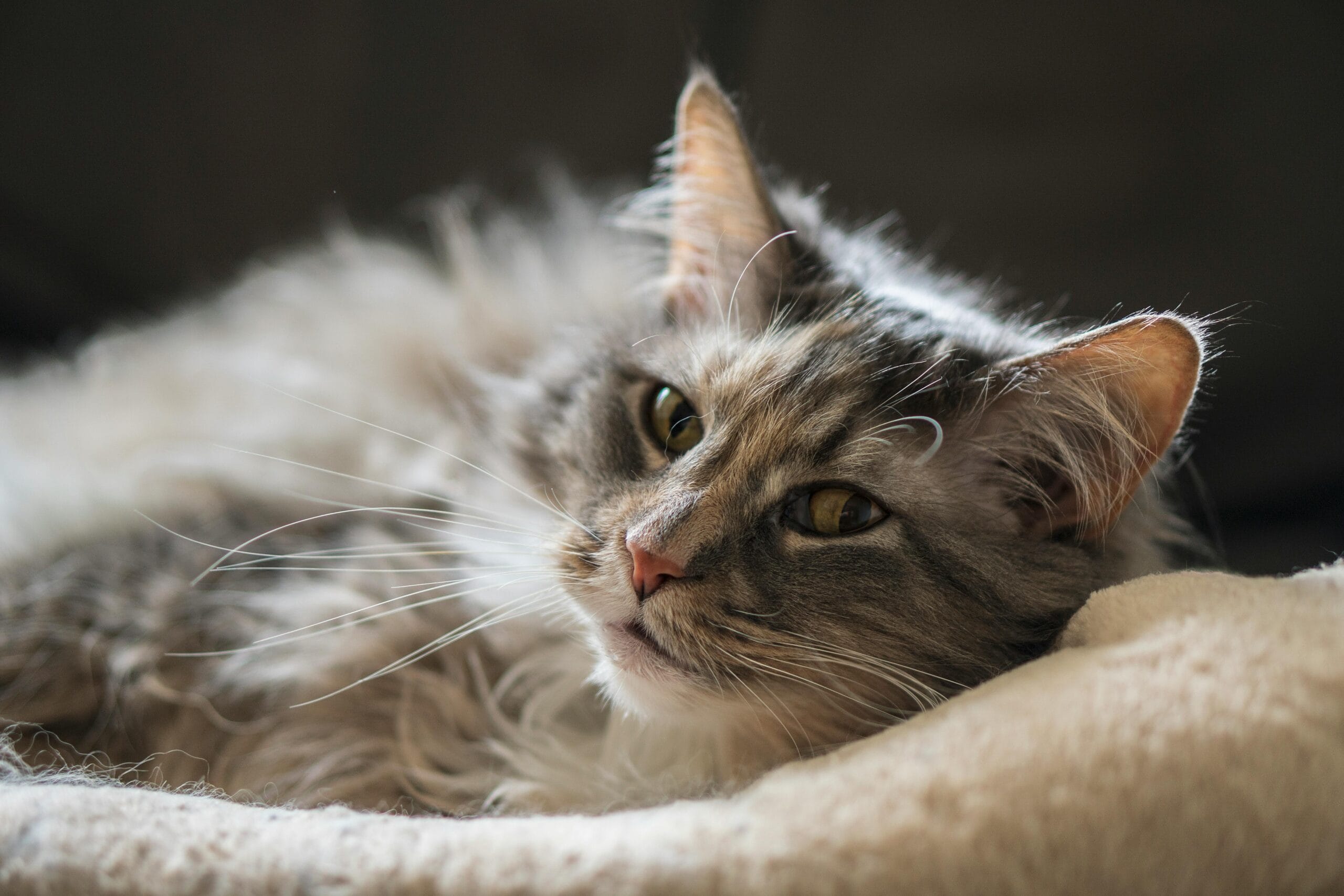Why Is My Cat Peeing On My Bed ?

Why is your cat peeing on your bed? Find out why & how to stop cat urine on your bed! Solve indoor cat peeing issues & reclaim your sleep. Get expert solutions now! #CatUrine #CatPeeing
Why Is My Cat Peeing On My Bed? A Comprehensive Guide
Discovering cat urine on your bed is undeniably unpleasant. The pungent smell lingers, and the stain is a constant reminder of your feline friend’s uncharacteristic behavior. But before you despair, understanding why your cat is peeing on your bed is the first step towards resolving the issue. This comprehensive guide will explore the common reasons behind cat urine on bed incidents, offering practical solutions and helping you reclaim your sleep space. We’ll cover everything from medical issues to behavioral problems, ensuring you understand the root cause and can effectively address cat peeing indoors.
Understanding Cat Urination Habits
Cats are incredibly clean animals. When a cat starts peeing outside the litter box, it’s a clear sign that something is amiss. Unlike dogs, who may urinate out of excitement or submission, cats usually associate urination with specific messages. They’re communicating something important, and it’s crucial to decipher that message to understand why your cat is targeting your bed.
Before delving into the reasons, let’s eliminate a few immediate possibilities. Ensure your cat has consistent access to clean litter boxes. A dirty litter box is one of the most common culprits behind cat peeing indoors. Ideally, you should have one litter box per cat, plus one extra. Also, check the type of litter you’re using. Some cats are sensitive to certain types, and a change might be necessary. Finally, ensure the litter boxes are placed in quiet, easily accessible locations away from food and water bowls.
Medical Reasons: Why Is My Cat Peeing On My Bed?
Sometimes, cat urine on bed is a symptom of an underlying medical condition. Urinary tract infections (UTIs), bladder stones, kidney disease, diabetes, and even arthritis can cause pain and discomfort during urination, leading cats to choose alternative locations that are softer or more comfortable. These conditions may also manifest as increased urination frequency or straining during urination.
If your cat suddenly starts exhibiting changes in urination habits, a veterinary visit is crucial. A thorough examination and potentially some diagnostic tests (urine analysis, blood work, X-rays) can determine if a medical issue is the root cause. Early diagnosis and treatment are critical to preventing long-term health problems. Ignoring medical issues could exacerbate the problem, leading to more frequent cat peeing indoors incidents.
Remember, your veterinarian is your best resource for determining if a medical issue is at play. Do not hesitate to seek professional help if you suspect a medical reason for the changes in your cat’s urination habits.
Behavioral Reasons: Cat Urine On Bed
If your vet rules out any medical problems, the cause is likely behavioral. Cats mark territory through urination, leaving behind scent signals. Your bed, with its familiar human scent, might be perceived as a particularly desirable location to leave a mark. Several behavioral factors can contribute to this issue.
Stress and Anxiety: Why Is My Cat Peeing On My Bed?
Stress is a major trigger for inappropriate urination. Changes in the household, such as a new pet, a move, or even a new piece of furniture, can cause significant stress, leading your cat to seek comfort and security by marking their territory, including your bed.
To alleviate stress, create a safe and predictable environment for your cat. Provide plenty of vertical space (cat trees, shelves) for them to perch and observe their surroundings. Use pheromone diffusers (like Feliway) which can help reduce anxiety and promote a sense of calm. Consider playing with your cat regularly to build a stronger bond and provide mental stimulation. A consistent routine also helps reduce stress.
Territorial Marking: Cat Peeing Indoors
As mentioned earlier, cats often mark territory through scent. If your cat feels a lack of control or insecurity in their environment, they might urinate on your bed to assert their dominance or claim it as their own. This is particularly common if there are multiple cats in the household competing for resources or attention.
Provide enough resources for each cat, including litter boxes, food and water bowls, scratching posts and sleeping areas. This minimizes competition and reduces stress.
Litter Box Aversion: Why Is My Cat Peeing On My Bed?
Even if the litter box is clean, your cat might have an aversion to it. This could be due to the type of litter, the location of the box, or even the box itself. They may prefer a different texture or a more private location.
Try experimenting with different types of litter, locations, and even the type of litter box itself. Some cats prefer covered boxes, while others prefer uncovered ones. Consider placing the litter box in a quieter, less trafficked area of the house.
Medical attention is crucial
While behavioral issues are a common cause of cat urine on bed, it is essential to rule out medical conditions first. As mentioned earlier, urinary tract infections, kidney disease, diabetes, and other health problems can cause painful urination, leading your cat to seek alternative places to relieve themselves. Consult your veterinarian for a thorough check-up if you suspect a medical cause, especially if the problem persists despite addressing behavioral factors. A comprehensive diagnosis by a veterinarian is crucial for identifying and effectively managing the underlying health issues contributing to cat peeing indoors.
Solving the Problem: Cat Urine On Bed
Once you’ve identified the underlying cause, you can start addressing the problem. This might involve a combination of approaches:
Thorough Cleaning: Cat Urine On Bed
Cleaning up cat urine is crucial. Simply blotting it up isn’t enough, as the scent can linger and encourage your cat to repeat the behavior. Use an enzymatic cleaner specifically designed for pet urine; these break down the odor-causing compounds, preventing future accidents. Regular cleaning is vital, making sure you thoroughly clean both the mattress and any affected bedding.
Behavioral Modification: Cat Peeing Indoors
If stress or anxiety is the cause, implementing stress-reducing measures is crucial. This may include creating a safe space, using pheromone diffusers, and ensuring your cat gets plenty of enrichment and attention. If territorial marking is involved, providing additional resources and ensuring each cat has its own space might help. Consistent and positive reinforcement training can help.
Consulting a Veterinarian or Certified Cat Behaviorist
If you’re struggling to identify the cause or find solutions, seeking professional help is advisable. A veterinarian can rule out any underlying medical conditions, while a certified cat behaviorist can provide personalized advice and guidance to address behavioral issues. A behaviorist can provide strategies tailored to your cat’s specific needs and habits. For more information on feline behavior, you can refer to the Cornell Feline Health Center. Their resources are comprehensive and informative.
Litter Box Management
Proper litter box management is critical. Make sure the litter box is clean, accessible, and located in a quiet area away from food and water. Experiment with different types of litter to see what your cat prefers. Some cats prefer uncovered boxes, while others prefer covered ones. The International Cat Care website offers further guidance on this topic. Providing multiple litter boxes, especially for multi-cat households, can help prevent resource-related conflicts.
Preventing Future Incidents
Once you’ve resolved the immediate problem, taking steps to prevent future incidents is crucial. This includes maintaining a clean litter box, providing a stress-free environment, and addressing any underlying behavioral or medical issues. Regular veterinary checkups are essential, especially as cats age, as underlying medical conditions can develop gradually and go unnoticed. Early detection and intervention improve the success rate of treatment.
Conclusion: Why Is My Cat Peeing On My Bed?
Cat urine on bed is a frustrating problem, but with careful observation, investigation, and appropriate action, it can be resolved. Understanding the underlying causes, whether medical or behavioral, is critical. By addressing these causes and implementing appropriate solutions, you can help your feline friend overcome this issue and restore peace and cleanliness to your bedroom. Remember to consult your veterinarian or a certified cat behaviorist for personalized advice. Your cat’s well-being is paramount, and early intervention can make all the difference.
Have you dealt with a similar situation? Share your experiences and solutions in the comments below. Let’s create a supportive community to help fellow cat owners navigate cat peeing indoors and understand why is my cat peeing on my bed.
We’d love to hear about your experiences with cat urine on bed and how you solved the problem! Share your success stories and challenges in the comments below. Let’s learn from each other and provide support in tackling this common feline issue. Let us know what worked for you and what didn’t! This shared knowledge can help countless cat owners.

FAQ: Why Is My Cat Peeing On My Bed?
1. Q: Why is my cat suddenly peeing on my bed after being litter box trained?
A: Several factors can cause a sudden change in litter box habits, including stress (new pet, move, change in routine), urinary tract infections (UTIs), kidney disease, arthritis making it difficult to reach the litter box, or dislike of the litter box itself (type of litter, cleanliness, location). A vet visit is crucial to rule out medical issues. If medical issues are ruled out, address potential stress or litter box problems.
2. Q: My cat pees on my bed only sometimes; what does this mean?
A: Intermittent inappropriate urination suggests a less severe medical issue or a behavioral problem. This could range from marking territory to expressing stress related to specific triggers. Observe your cat’s behavior to identify patterns and potential stressors. Consider a vet checkup and a behavioral consultation.
3. Q: How do I get rid of cat urine smell from my bed?
A: Cat urine on bed requires thorough cleaning. Use a commercial enzymatic cleaner specifically designed for pet urine to break down the odor-causing components. Simply washing won’t eliminate the smell. Repeat the cleaning process several times if necessary. If the smell persists, consider professional cleaning or replacing the bedding.
4. Q: Is my cat peeing on my bed to get attention?
A: While attention-seeking behavior is possible, it’s less likely the sole reason. Cats often communicate distress, anxiety, or medical problems through inappropriate urination. While giving your cat positive attention when using the litter box correctly is helpful, focus on addressing the underlying cause of the inappropriate urination.
5. Q: My cat pees everywhere except the litter box; what should I do?
A: This indicates a serious problem. A veterinary checkup is imperative to rule out medical causes like UTIs, kidney disease, or diabetes. If no medical issue is found, assess the litter box situation (location, cleanliness, type of litter) and the overall environment for stressors. Behavioral modification might be necessary.
6. Q: Why is my male cat spraying on my bed?
A: Male cats often spray urine to mark their territory, especially if they are unneutered. Neutering can significantly reduce or eliminate this behavior. If neutered, stress or other underlying medical conditions might be at play. Consult your vet for proper diagnosis and treatment. Cleaning the area thoroughly with an enzymatic cleaner is essential.
7. Q: My female cat is peeing on my bed; is it a medical issue?
A: Yes, it could be. Urinary tract infections, kidney problems, or even stress can cause inappropriate urination in female cats. A veterinary examination is vital to rule out any underlying medical conditions contributing to Cat Peeing Indoors.
8. Q: How can I prevent my cat from peeing on my bed again?
A: Address any underlying medical issues discovered through a vet visit. Then, improve the litter box situation, manage stressors in the environment, and consider using pheromone diffusers or sprays to help calm your cat. Make the bed less appealing by using deterrents like double-sided tape or citrus-scented sprays (avoid strong chemicals).
9. Q: My cat only pees on my bed when I’m not home; why?
A: This often points to separation anxiety. Your cat might feel stressed and insecure when alone. Try to gradually desensitize your cat to being alone, using pheromone diffusers, and ensuring a safe and comfortable environment for your cat while you are away.
10. Q: What if cleaning the Cat Urine on Bed doesn’t work?
A: If the odor persists despite thorough cleaning with an enzymatic cleaner, you might need to replace the mattress or bedding. The urine may have penetrated deeper than you can clean effectively. Professional cleaning services specializing in pet stains might be a worthwhile investment.

Why Is My Cat Peeing on My Bed? Practical Tips and Health Considerations
Discovering your cat has urinated on your bed is distressing, but understanding the underlying causes is crucial for resolving the issue. This isn’t about punishment; it’s about identifying and addressing your cat’s needs.
Medical Reasons: Rule Out the Illness First
Before considering behavioral issues, a veterinary checkup is paramount. Urinary tract infections (UTIs), kidney disease, diabetes, and even arthritis can cause inappropriate urination. Your vet can run tests to rule out any medical conditions.
SEO Keywords: Cat urination, feline urinary tract infection, UTI in cats, kidney disease in cats, diabetes in cats, feline arthritis
Behavioral Reasons: Understanding Your Cat’s Communication
If medical issues are ruled out, several behavioral factors may be at play:
- Stress and Anxiety: Changes in the household (new pet, move, family member), loud noises, or even a change in litter box location can trigger stress-induced urination. Create a calm and predictable environment.
- Litter Box Issues: The litter box itself may be the problem. Ensure it’s clean, spacious enough, and located in a quiet, accessible area. Try different types of litter to see if your cat prefers one over another. Multiple litter boxes are recommended, especially for multi-cat households.
- Marking Territory: Cats may urinate outside the litter box to mark territory, especially unneutered males. Neutering can significantly reduce this behavior.
- Urine Spraying vs. Urination: Spraying involves a small amount of urine, usually on vertical surfaces, and is often a territorial behavior. Urination involves larger volumes and usually indicates a more significant problem.
SEO Keywords: Cat stress, anxiety in cats, cat litter box problems, cat spraying, neutering cats, multi-cat household
Practical Solutions: Addressing the Problem
- Thorough Cleaning: Use an enzymatic cleaner to eliminate the urine odor completely. Cats have an extremely sensitive sense of smell and may be drawn back to the area if any scent remains.
- Environmental Enrichment: Provide scratching posts, climbing structures, and toys to reduce boredom and stress.
- Feliway Diffuser: These diffusers release pheromones that can help reduce stress and anxiety.
- Positive Reinforcement: Reward your cat for using the litter box with treats and praise.
- Prevent Access: If necessary, temporarily block your cat’s access to your bed until the problem is resolved.
SEO Keywords: Enzymatic cleaner for cats, cat enrichment, Feliway, cat behavior modification, positive reinforcement training
When to Seek Professional Help
If you’ve tried the above steps and the problem persists, consult a certified veterinary behaviorist or a cat behavior consultant. They can provide a personalized assessment and develop a tailored behavior modification plan.
SEO Keywords: Veterinary behaviorist, cat behavior consultant